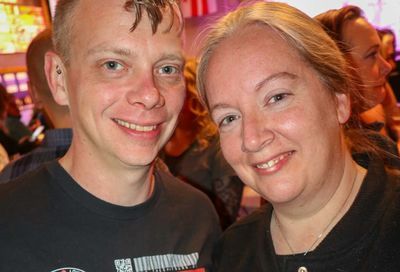Congressional leaders call on federal government to collect LGBTQ data on COVID-19
Senators say more data on COVID-19's impact on LGBTQ people is needed to ensure an appropriate response

A group of nearly 100 U.S. senators and representatives have demanded that the federal government collect data on sexual orientation and gender identity during the ongoing COVID-19 pandemic, in order to measure the effect the virus has had upon historically marginalized communities.
In a letter sent to Health and Human Services Secretary Alex Azar last week, the members of Congress urged him to fulfill the agency’s commitment to its Healthy People 2020 objectives by collecting data on how COVID-19 has impacted LGBTQ people.
Currently, the Centers for Disease Control and Prevention’s COVID-19 Case Report Form does not include questions about whether a patient identifies as LGBTQ.
But critics say that the exclusion of that information ignores the objectives of Section 4302 of the Affordable Care Act’s provisions to strengthen federal data collection efforts, reports NBC News.
“The current lack of demographic data that includes sexual orientation and gender identity will make it difficult for health care providers and policymakers to clearly identify and address the prevention and treatment needs of lesbian, gay, bisexual, transgender, and queer communities and will exacerbate the challenges that these populations are already experiencing during the COVID-19 public health emergency,” the congressional lawmakers wrote in their letter to Azar. “We strongly urge you to include information on sexual orientation and gender identity as part of any COVID-19 data collection efforts.”
According to a recent report from the Human Rights Campaign, members of the LGBTQ community are more likely to be impacted by the virus, and are more likely to lack access to adequate medical care, paid medical leave, and basic necessities during the pandemic.
“The fact remains that we know little about the social and economic circumstances of the LGBTQ population at large,” the lawmakers added. “For these reasons, we believe that it is critical for the federal government to work with states and localities to provide disaggregated data on sexual orientation, gender identity, and other demographic characteristics when reporting COVID-19 tests, cases, and fatalities to the CDC.”
Related: HRC: LGBTQ people experiencing more negative economic impact from COVID-19
The lawmakers also called on HHS to document and report the virus’s impact on LGBTQ communities, requesting information about the agency’s outreach efforts to that population and urging HHS to issue guidance to state health departments on why the collection of LGBTQ data is important.
Data on infection rates among LGBTQ people is scarce: Pennsylvania is the only state that currently collects data on the sexual orientation and gender identity of COVID-19 patients.
California State Sen. Scott Wiener (D-San Francisco) has introduced a bill to require the same thing in California, but that measure is still working its way through the legislature.
The co-organizers of the congressional coalition, Sens. Bob Menendez (D-N.J.) and Tammy Baldwin (D-Wis.), told NBC News that data is needed to determine whether public health officials need to tailor their response to the pandemic to address specific vulnerabilities.
“Congress and governmental agencies rely on data to create better health programs, direct vital resources to communities, and better the health of all people,” Menendez said.
“We know that LGBTQ people experience significant health disparities, and the coronavirus pandemic has the potential to disproportionately impact them as well,” Baldwin said. “We must ensure that we have the data and information needed to better understand the full extent that this public health crisis is inflicting on our community.”
Read more:
U.S. Supreme Court refuses request to delay or postpone transgender inmate’s surgery
Colorado man protests gay governor’s stay-at-home order with “Open Our Gyms Faggot” sign
Police investigating shooting of Louisiana gay man as possible hate crime
Support Metro Weekly’s Journalism
These are challenging times for news organizations. And yet it’s crucial we stay active and provide vital resources and information to both our local readers and the world. So won’t you please take a moment and consider supporting Metro Weekly with a membership? For as little as $5 a month, you can help ensure Metro Weekly magazine and MetroWeekly.com remain free, viable resources as we provide the best, most diverse, culturally-resonant LGBTQ coverage in both the D.C. region and around the world. Memberships come with exclusive perks and discounts, your own personal digital delivery of each week’s magazine (and an archive), access to our Member's Lounge when it launches this fall, and exclusive members-only items like Metro Weekly Membership Mugs and Tote Bags! Check out all our membership levels here and please join us today!























You must be logged in to post a comment.